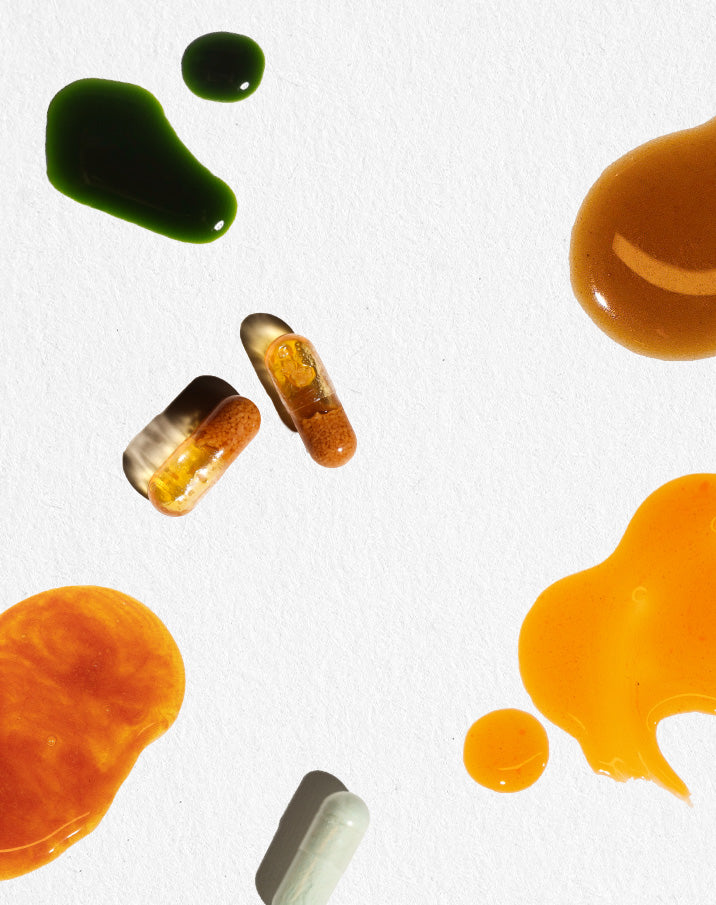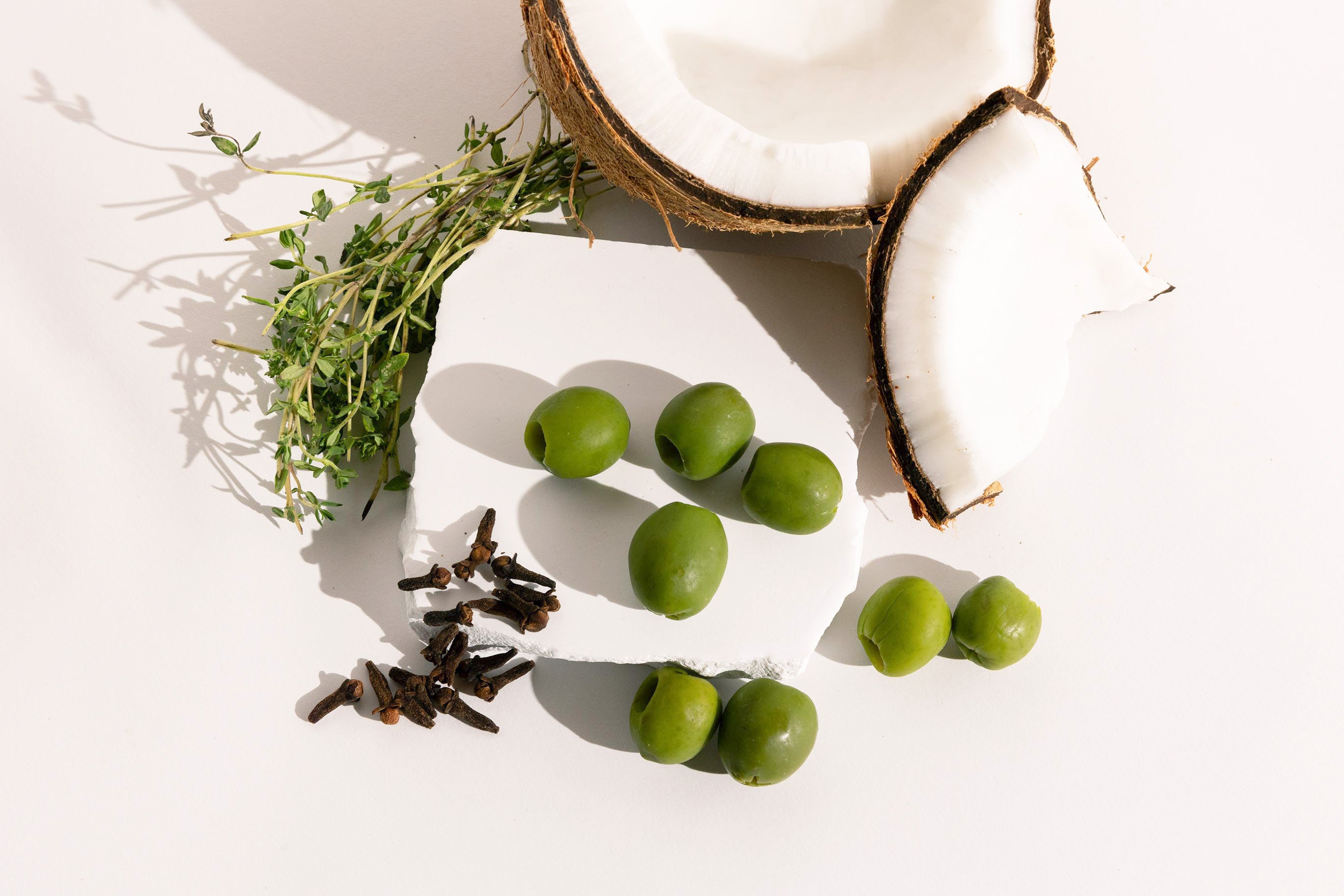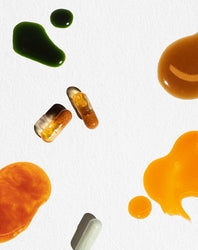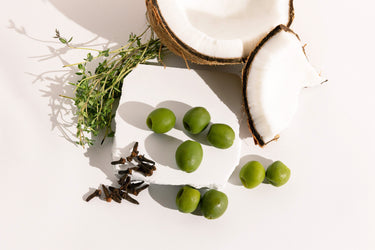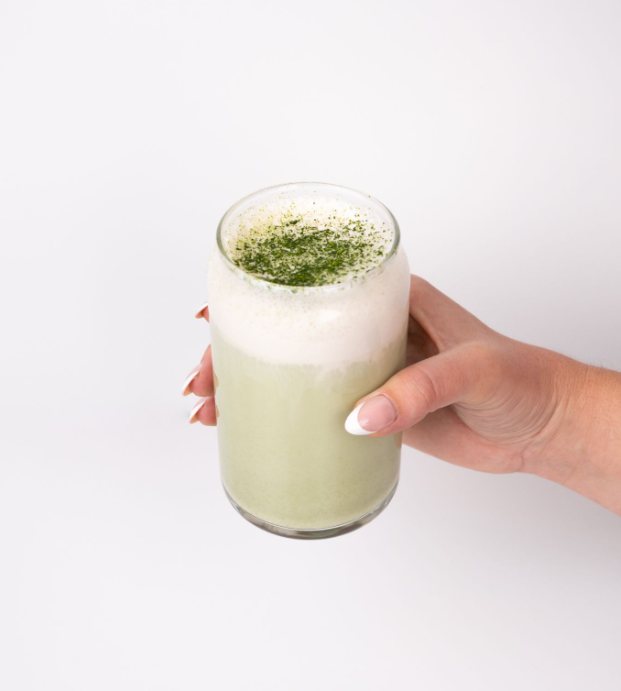
Aging is a sign of life unfolding in all its richness and splendor. Gaining a few smile lines or wise forehead crinkles is completely normal.
However, as the body ages, certain cellular and internal processes slow down. Some of the most common signs include slower metabolism. When you get older, you’ll notice that stomach issues and bloating are more prevalent. You may wonder, “Why does my stomach get bloated after I eat?” Again, your metabolism isn’t as fast as it used to be. When this time comes, it’s helpful to support your body with natural ingredients to sustain your healthy functions and glowing radiance well through your formative years.
If you’re looking for ways to support your body’s aging naturally, there are a few powerful vitamins, minerals like pure shilajit, and many more earth-grown supplements you can rely on. Let’s take a look at the best anti-aging supplements nature has to offer.
#1 Glutathione
You may have heard about the benefits of antioxidants in the world of anti-aging. If you haven’t, the short answer is that antioxidants help the body fight off free radicals, which are unstable atoms that can damage cells and cause aging and disease.1
Glutathione is the crown jewel of such helpful antioxidants.
Glutathione is a tripeptide. This means it contains not one, but three beneficial amino acids, or proteins, that help the body fight free radicals and detoxify from the inside out.2
How Glutathione Helps with Anti-Aging
What are the benefits of glutathione? Here are a few ways that this powerful antioxidant trifecta may help the cells in your body maintain a fortified guard against the effects of aging:2
How to Take Glutathione
Glutathione comes in two forms: oxidized or inactive and reduced or active. If you decide to supplement your diet with glutathione, look for reduced, or active glutathione, as it’s the most bioavailable and effective in antioxidative properties.
Our reduced liposomal glutathione supplement comes in liquid form for easy ingestion. Reduced glutathione can be taken multiple times weekly for optimal absorption and anti-aging power. If you run out of supplements, there are natural foods with glutathione, such as spinach, asparagus, avocado, and okra.
#2 Vitamin C
If you’re enjoying the benefits of vitamins and minerals for a healthy lifestyle, you’re likely to have heard about the benefits of vitamin C. The immunity-boosting advantages of this powerhouse vitamin are widely known.
But its secret weapon? Its anti-aging benefits.
Vitamin C, or ascorbic acid, is yet another helpful antioxidant, staking it at the front lines of the fight against free radicals, next to glutathione, also making it an anti-aging vitamin. But ascorbic acid also carries several other superpowers to promote healthy aging:6
How to Take Vitamin C
Because vitamin C is water soluble, it moves through the body quickly. That’s why it’s important to absorb vitamin C in your diet as often as you can. Vitamin C can be found in many fruits and vegetables like citrus fruits, berries, potatoes, tomatoes, and peppers.
Many people also supplement their diet with vitamin C to ensure they’re getting the optimal amount per day to foster anti-aging power and immunity support. Liposomal Vitamin C supplements can be found in tablet or drink powder form for easy consumption.
You can also apply Vitamin C topically on aging skin. Plenty of serums, toners, and even powders pair vitamin C with other active ingredients, such as Vitamin E, Vitamin D, Vitamin A, Vitamin B3, hyaluronic acid, collagen, and green tea extract to improve the skin’s complexion. Aside from their anti-aging benefits, these vitamins boost skin health, improve skin elasticity, and maintain skin hydration.
If you do apply vitamin C on your skin during the daytime, make sure to apply sunscreen afterward. Vitamin C is considered an active ingredient, so it oxidizes faster under UV rays. Without proper suncare, skin aging may accelerate, which is the opposite desired effect.
#3 CoQ10
Perhaps one of the least known anti-aging supplements is CoQ10, otherwise known as coenzyme Q. Similar to glutathione, CoQ10 is an antioxidant created naturally in the body. It resides primarily in the mitochondria or the powerhouse of our cells.
As an enzyme in such close quarters with the mitochondria, CoQ10 plays a crucial role in cellular function and protection. It’s another antioxidant that protects cells from oxidative stress that leads to aging.
CoQ10 can also help:
How to Take CoQ10
The two types of CoQ10 supplements are ubiquinol and ubiquinone. Ubiquinol is the active form of CoQ10. Although studies show mixed results, some research shows that ubiquinol is more bioavailable than ubiquinone,10 indicating that it may be a more favorable form of the supplement.
CoQ10 is typically found in tablet form, but can also be found in liquid form to dissolve in water or other beverages. Cymbiotika’s liposomal CoQ10 supplement is formulated to support heart health that supports anti-aging efforts simply by adding it to your breakfast shake or drink. Liposomal supplements are easily absorbed by the body as the nutrients are stored inside of a lipid, making them more digestible than traditional supplements.
Additional Anti-Aging Supplements
Although glutathione, vitamin C, and CoQ10 are at the top of our lists for natural anti-aging supplements, they’re certainly not the only ones.
Here are a few other natural supplements to look out for when shopping for nature-based supplements for aging:
Vitamin D3 and K2 work together to send calcium to the bones15. Otherwise, the calcium can accumulate in the arteries rather than be dispersed to where it’s needed.
Promote Healthy Aging with Natural Supplements from Cymbiotika
Even if you find the best anti-aging supplement, you can't escape the aging process. But you can keep aging skin healthy as you get older through a healthy diet and lifestyle. In the search for anti-aging supplements, we needn’t look further than the nature all around us. The powerful anti-aging properties of natural supplements from Cymbiotika provide natural and effective ways to foster healthy aging.
With Cymbiotika, there’s no need to forage in the forest or in the pharmacy for these anti-aging staples. We do all the work for you.
At Cymbiotika, we source the highest quality, most bioavailable supplements nature can offer. Then, we infuse them in easy-to-consume tablets, drinkable powders, and stirrable pumps for seamless, stress-free enjoyment.
Root your natural anti-aging routine in the power of nature and explore all of our best-in-class anti-aging products today.
Sources:
- Oxidative medicine and cellular longevity. Oxidative Stress: Harms and Benefits for Human Health. https://www.ncbi.nlm.nih.gov/pmc/articles/PMC5551541/
- Cancer.gov. Glutathione. https://www.cancer.gov/publications/dictionaries/cancer-drug/def/glutathione
- Clinical, cosmetic and investigational dermatology. Glutathione and its antiaging and antimelanogenic effects. https://www.ncbi.nlm.nih.gov/pmc/articles/PMC5413479/
- Ageing research reviews. Detoxification reactions: relevance to aging. https://www.ncbi.nlm.nih.gov/pmc/articles/PMC2671233/
- JPEN. Journal of parenteral and enteral nutrition. How amino acids get into cells: mechanisms, models, menus, and mediators. https://pubmed.ncbi.nlm.nih.gov/1494216/
- Harvard School of Public Health. Vitamin C. https://www.hsph.harvard.edu/nutritionsource/vitamin-c/
- Frontiers in physiology. Coenzyme Q10 Supplementation in Aging and Disease. https://www.ncbi.nlm.nih.gov/pmc/articles/PMC5807419/
- Cleveland Clinic. What Is CoQ10? https://health.clevelandclinic.org/what-is-coq10/
- The journal of nutrition, health & aging. Improved Health-Related Quality of Life, and More Days out of Hospital with Supplementation with Selenium and Coenzyme Q10 Combined. Results from a Double Blind, Placebo-Controlled Prospective Study. https://pubmed.ncbi.nlm.nih.gov/26482687/
- Food & function. Ubiquinol is superior to ubiquinone to enhance Coenzyme Q10 status in older men. https://pubmed.ncbi.nlm.nih.gov/30302465/
- International journal of molecular sciences. Vitamin K as a Powerful Micronutrient in Aging and Age-Related Diseases: Pros and Cons from Clinical Studies. https://www.ncbi.nlm.nih.gov/pmc/articles/PMC6747195/
- Circulation journal : official journal of the Japanese Circulation Society. Molecular Hydrogen Alleviates Cellular Senescence in Endothelial Cells. https://pubmed.ncbi.nlm.nih.gov/27477846/
- Oncotarget. Molecular hydrogen: a preventive and therapeutic medical gas for various diseases. https://www.ncbi.nlm.nih.gov/pmc/articles/PMC5731988/
- International journal of molecular sciences. The Role of Curcumin in the Modulation of Ageing. https://www.ncbi.nlm.nih.gov/pmc/articles/PMC6429134/
- Lara, Cesar A. “Why Should I Take Vitamin D3 with Vitamin K2?” Dr. Lara Weight Loss & Wellness. drlaraweightloss.com/2020/11/why-should-i-take-vitamin-d3-with-vitamin-k2/
- Cleveland Clinic. Collagen. https://my.clevelandclinic.org/health/articles/23089-collagen
